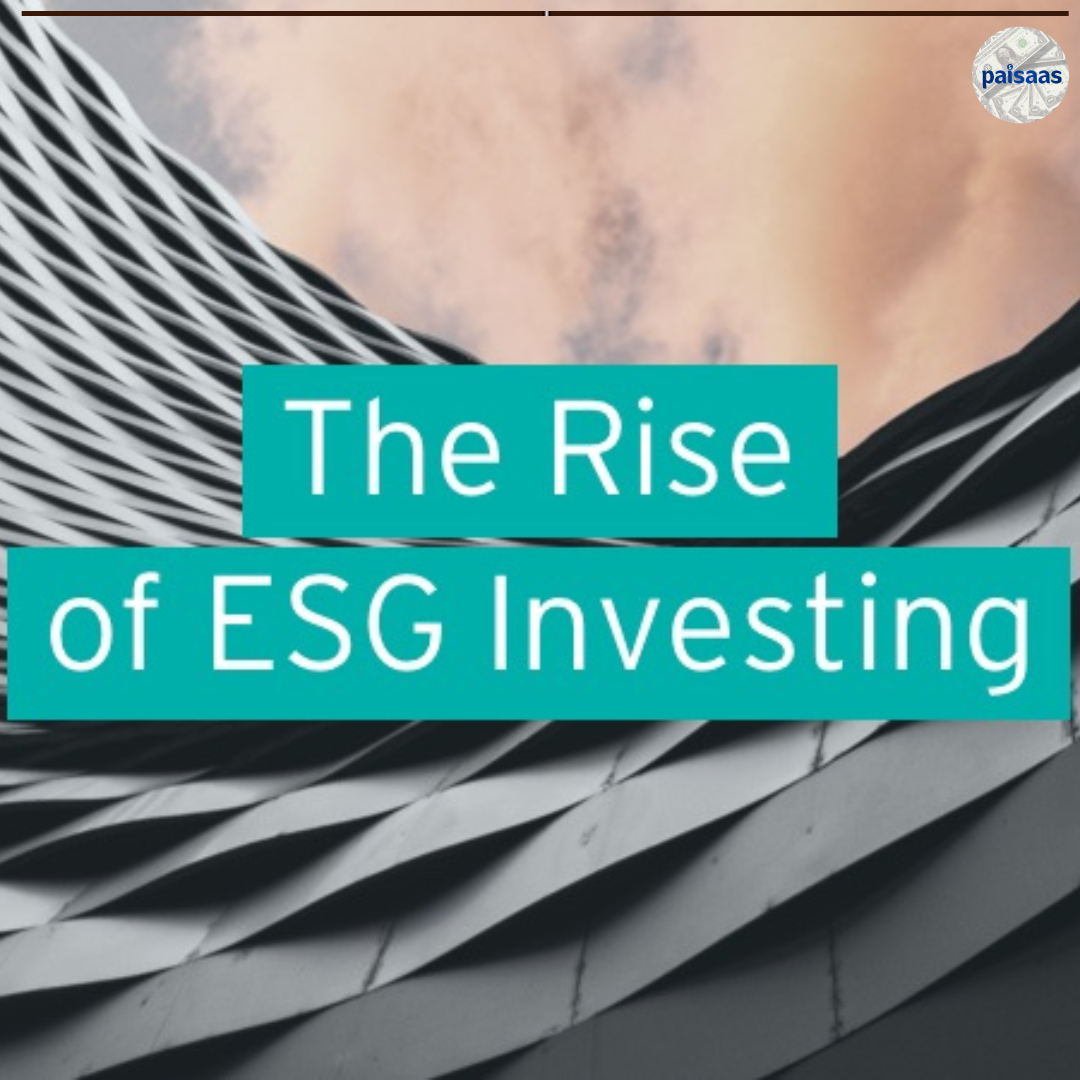

“Driving Change: The Power of ESG Investing in a Sustainable Future”
Driving Change: The Power of ESG Investing in a Sustainable Future
Introduction: As the world grapples with pressing environmental and social challenges, investors are increasingly recognizing the significance of environmental, social, and governance (ESG) factors in their decision-making processes. ESG investing focuses on integrating sustainability and ethical considerations into investment strategies, aiming to generate positive impact alongside financial returns. This article explores the growing importance of ESG investing, its benefits for both investors and society, and the role it plays in driving change towards a more sustainable future.
Understanding ESG Investing: ESG investing goes beyond traditional financial analysis by incorporating non-financial factors that have an impact on companies’ long-term performance. Environmental factors consider a company’s efforts to reduce its ecological footprint, mitigate climate change, and promote resource efficiency. Social factors encompass the treatment of employees, community relations, diversity and inclusion, and human rights considerations. Governance factors assess the effectiveness of a company’s leadership, board structure, and adherence to ethical business practices.
The Benefits of ESG Investing:
- Long-Term Value Creation: ESG investing recognizes that companies with sustainable business practices are better positioned for long-term success. By considering ESG factors, investors can identify companies that are proactive in managing risks, embracing innovation, and capitalizing on emerging market opportunities. This approach aligns financial returns with positive impact, fostering resilient and value-driven investment portfolios.
- Risk Mitigation: ESG integration helps investors identify and mitigate potential risks associated with environmental and social issues. Companies with robust environmental practices are better equipped to navigate regulatory changes and adapt to evolving market demands. Strong social and governance practices reduce reputational risks, enhance stakeholder trust, and minimize the likelihood of costly controversies or legal challenges.
- Positive Impact: ESG investing provides investors with an opportunity to drive positive change by directing capital towards companies that prioritize sustainability and social responsibility. By supporting businesses that align with their values, investors can contribute to the development of a more equitable, inclusive, and environmentally conscious society. ESG investments can promote sustainable development, advance social progress, and address pressing global challenges such as climate change, poverty, and inequality.
The Role of Investors in Driving Change:
- Influence on Corporate Behavior: Through active engagement and proxy voting, investors can influence companies to adopt more sustainable and responsible practices. Shareholder activism encourages companies to enhance their ESG performance, increase transparency, and align business strategies with global sustainability goals. By using their voice and voting power, investors play a vital role in shaping corporate behavior and fostering positive change.
- Capital Allocation: Investors have the power to allocate capital towards companies that demonstrate strong ESG performance. By investing in sustainable businesses, investors create incentives for companies to adopt responsible practices and align their operations with sustainability goals. This capital allocation can drive the transition to a low-carbon economy, promote innovation in renewable energy, and support social initiatives that address societal challenges.
- Collaboration and Standardization: Investors, along with industry associations, regulatory bodies, and civil society, are working towards standardizing ESG metrics, reporting frameworks, and disclosure practices. This collaborative effort enhances transparency, comparability, and accountability in ESG performance assessment. Consistent and reliable ESG data enables investors to make informed decisions and encourages companies to improve their ESG practices to attract capital.
Conclusion
Conclusion: ESG investing represents a powerful force for change, aligning financial objectives with sustainability and social responsibility. By integrating ESG factors into investment decisions, investors can generate positive impact while pursuing financial returns. ESG investing not only mitigates risks and creates long-term value but also drives companies to adopt more sustainable practices and address pressing environmental and social challenges. As ESG considerations continue to gain prominence, investors have an opportunity to shape a more sustainable future by allocating capital towards businesses that prioritize people, the planet, and sound governance.




